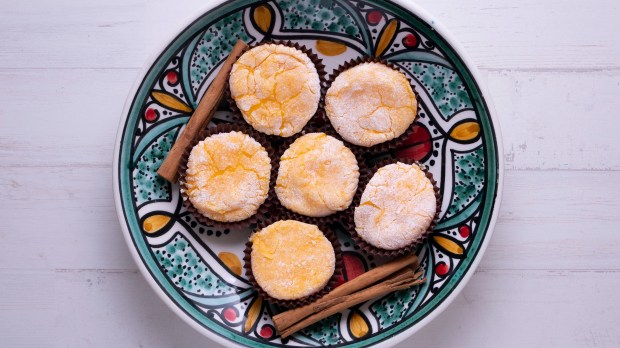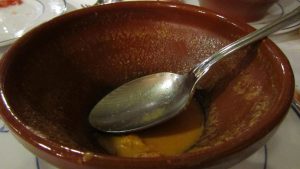Touring monasteries and visiting convents in the Iberian Peninsula is not just for those who want to know more about some of the most popular saints in Catholicism – namely, Domingo de Guzmán, Teresa de Ávila, or Ignacio de Loyola. There are also simpler, even sweeter reasons to drop by a Dominican, Discalced Carmelite, or Poor Clare convent throughout Spain: traditional, handmade conventual sweets and pastries.
As Teresa de Ávila famously wrote, “God is among the pots and pans.” In many (if not most) cities, villages, and towns in Spain you will find traditional sweet treats, delicately made in local convents, produced in limited quantities to help support the monastic community: marzipan, wine-flavored tortas, chocolate truffles, egg cakes, cream puffs, tejas, almond biscuits. Among them, the famous yemas (a simple, unique combination of egg yolks beaten with sugar syrup) occupy a special place, perhaps because of their captivating simplicity.
Whereas these sweets can be bought directly in monasteries and cloistered convents in Spain (often ordered in advance), some of them can also be found in other establishments, and even online: the Poor Clares of Marchena, for example, sell their sweet Franciscan sesame-and-cinnamon Taus here; and the website of the Fundación Contemplare offers a whole array of both sweet treats and handcrafts that you can easily purchase. But if you want to set out on the road to go on your own divine sweets hunt, we recommend these three places (and this online cloister bakery) that will satisfy your spirit and your cravings.
Yemas de Ávila, from the Monastery of Santa Teresa de Ávila; Castilla y León
The Monastery of St. Teresa of Jesús, while known primarily for (purportedly) being built over the saint’s birthplace, houses more than the story of the founder of the Discalced Carmelites.
The famous yemas of Ávila are basically made with egg yolks, beaten in copper pots. In a separate pot, lemon juice, cinnamon and sugar are cooked, and then added to the yolks. Having one of these is almost a (properly Teresian) mystical experience.

Dulces de La Concepción, from the Old Convent of Santa Clara, Alcázar de San Juan, Castilla-La Mancha
Located in the northeastern part of the province of Ciudad Real, San Juan de Alcázar was home for centuries to the Convent of Santa Clara, a sober Renaissance-style building that, until well into the 19th century, was home to the region’s Poor Clare nuns.
Today, the former convent is a hotel-restaurant that is also the epicenter of the city’s cultural life, which preserves the recipe for the famous dulces (sweets) of La Concepción: marzipan figurines that residents and visitors enjoy.
Yemas de San Leandro, from San Leandro Monastery, Seville, Andalusia
These yemas of San Leandro are not available anywhere else. If you want them, you’ll have to go to the monastery of the Augustinian sisters, near San Ildefonso Square, knock on the door, wait at the turnstile, and make your purchase.
When comparing recipes, the only difference there seems to be between these and those of Ávila is the cinnamon, but connoisseurs explain that the Augustinian yemas have a fluffier, cloud-like consistency.



